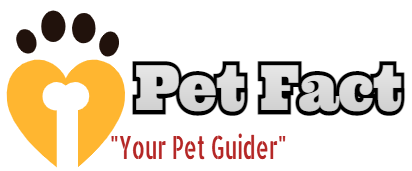Our furry friends have varying pet nutritional needs throughout their lives. Proper nutrition plays a big part in their overall health, energy levels, and longevity. Customizing their diet to their specific life stage helps see to it that they receive the essential nutrients required for the absolute best health and well-being.
From playful, active puppies to wise seniors, the following will examine the ins and outs of pet nutritional needs at different life stages.
Pet Nutritional Needs – Starting With Active Puppies
Puppies are bursting with energy as they explore the world around them. During this rapid growth phase, their bodies require high levels of nutrients to support development and sustain their playful antics.
Protein is a key component in their diet because it helps with muscle growth and repair. Look for puppy food formulas with quality protein sources like chicken, turkey, or fish.
What’s more, puppies need a balance of fats for energy and essential fatty acids for brain development. Omega-3 fatty acids, found in ingredients like fish oil, promote healthy cognitive function and shiny coats. It’s also important to make sure they receive enough vitamins and minerals to support their growing bones and immune system.
Adult Pet Nutritional Needs: Sustaining Health and Vitality
Once pets reach adulthood, maintaining their health and vitality becomes a big focus. Whether it’s a sleek feline or a loyal canine companion, providing a balanced diet is important for their overall well-being. Adult pet food formulations are designed to meet the specific needs of pets in their prime years.
For adult dogs, a balanced diet rich in protein, carbohydrates, fats, vitamins, and minerals is essential. Protein sources like chicken, beef, and lamb provide the necessary amino acids for muscle maintenance and immune function. Carbohydrates from sources like brown rice or sweet potatoes offer sustained energy throughout the day.
Healthy fats, like those found in fish oil or flaxseed, support skin and coat health while also providing omega-3 fatty acids for heart health. Also, vitamins and minerals play a big part in maintaining overall health and preventing deficiencies.
Providing a balanced and nutritious diet tailored to the specific needs of adult pets helps to make sure they remain healthy, active, and vibrant throughout their prime years.
Pet Nutritional Needs for Senior Dogs: Meeting Changing Needs
As dogs age, their nutritional requirements shift. Senior dogs may not be as active as their younger counterparts, but they still need a diet specific to their changing needs. Aging can bring about changes in metabolism, digestion, and mobility, making it necessary to adjust their diet accordingly.
Protein remains important for senior dogs, but they may benefit from formulas with slightly reduced levels to ease strain on aging kidneys. Look for diets with easily digestible protein sources like chicken or lamb. Senior-specific formulas often contain joint-supporting ingredients like glucosamine and chondroitin to help maintain mobility and alleviate arthritis symptoms.
Older dogs may require fewer calories to prevent weight gain and obesity-related health issues. Choosing a food for weight management can help maintain a healthy body condition and prevent unnecessary strain on aging joints.
But wait… not everyone is strictly a dog person. Cats need love (and food), too!
Pet Nutritional Needs for Cats: Catering to Feline Needs
Cats are known for their discerning palates and unique dietary requirements. Providing a balanced diet is imperative for their overall health and vitality. High-quality protein is a must for cats as committed carnivores, meaning they require meat in their diet to thrive.
Look for beneficial cat food formulas with meat as the primary ingredient to meet their protein needs.
Felines also require specific amino acids like taurine, found naturally in meat, to maintain heart health and vision. Essential fatty acids, like omega-6 and omega-3, contribute to healthy skin and a glossy coat. Incorporating fish oil into their diet can help fulfill these requirements.
Cats are prone to urinary tract issues, making hydration a necessity. Wet cat food or adding water to dry kibble can increase moisture intake and promote urinary tract health.
Pet Nutritional Needs for Small Animals: Catering to Unique Requirements
Small pets, like rabbits, guinea pigs, sugar gliders, and hamsters, have their own set of nutritional needs that differ from cats and dogs. These tiny companions require diets rich in fiber, vitamins, and minerals to support their unique digestive systems and promote overall health.
For herbivorous pets like rabbits and guinea pigs, a diet high in hay is essential for proper digestion and dental health. Timothy hay, in particular, provides the necessary fiber to keep their gastrointestinal tract functioning smoothly. Alongside hay, fresh vegetables like leafy greens and bell peppers offer additional vitamins and minerals to support overall health.
Small omnivorous pets like hamsters and gerbils require a mix of seeds, grains, and fresh fruits and vegetables to meet their nutritional needs. A fortified commercial pellet diet supplemented with fresh produce helps to guarantee that they receive the necessary nutrients for optimal health and vitality.
Providing opportunities for foraging and chewing helps mimic their natural behaviors and prevents boredom and dental issues.
So, understanding and meeting the nutritional needs of small pets is imperative for their health and well-being. By providing a balanced diet rich in fiber, vitamins, and minerals, we can make sure these beloved companions lead happy and healthy lives.
The Vital Role of Veterinary Visits in Proper Pet Nutrition
Regular veterinary visits are of the utmost importance so your pet receives the appropriate nutrition for perfect health. During these visits, veterinarians assess your pet’s overall health and can provide advice on diet and nutrients based on individual needs.
Pets, like humans, require specific nutrients in varying amounts depending on things like age, breed, size, and health conditions.
Veterinarians play a major role in guiding pet owners on selecting the right type and amount of food. They can recommend high-quality commercial diets or even suggest homemade recipes if necessary. Proper nutrition directly impacts various aspects of your pet’s health, including weight management, immune function, skin and coat condition, digestive health, and overall vitality.
Regular check-ups allow veterinarians to monitor your pet’s body condition score and weight, making dietary adjustments as needed to prevent malnutrition or obesity. They can also detect early signs of nutritional deficiencies or excesses, which might not be apparent to pet owners.
For example, certain breeds are predisposed to specific dietary sensitivities or health issues, and veterinarians can offer specialized advice to address these concerns.
By prioritizing regular vet visits, pet owners can make sure their beloved companions are receiving the right nutrients in the correct proportions, promoting longevity and overall well-being.
Nourishing Pets Through Every Life Stage
Understanding the nutritional needs of pets at different life stages is essential for their health and well-being. From active babies to wise seniors, providing a balanced diet tailored to their specific requirements makes sure they receive the nutrients they need to thrive.
Whether it’s choosing food for weight management or selecting formulas with joint-supporting ingredients, meeting these needs promotes longevity and enriches the quality of life for our beloved companions. By prioritizing proper nutrition, we can nourish our pets through every stage of their lives.


